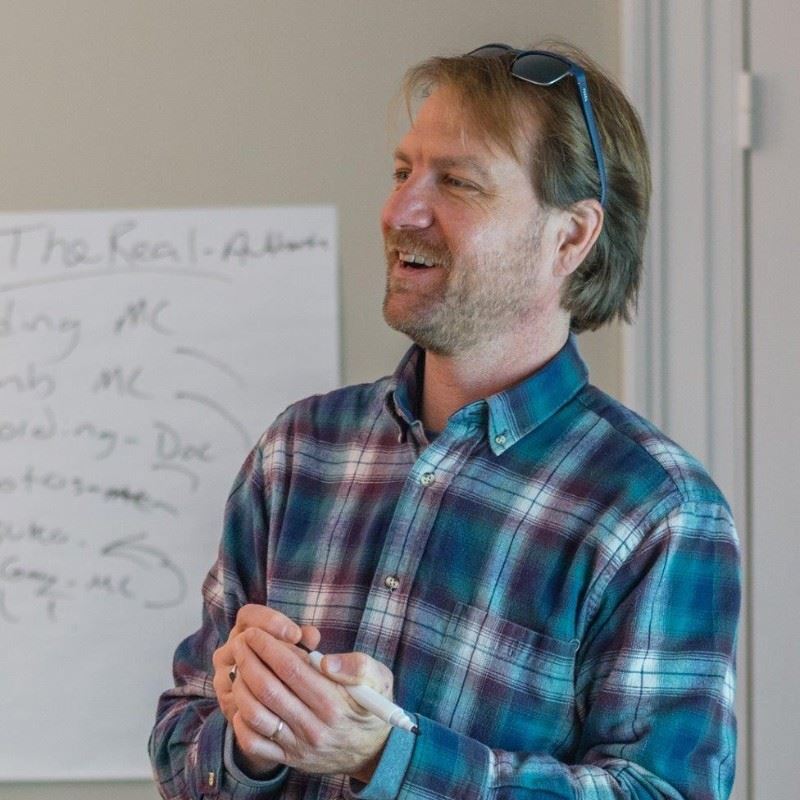 Small Museum Association
Small Museum Association
Small Museums Working Together
40th Annual Conference
Keynote and Plenary
Keynote: Shawn Halifax
 The people who work at small museums are often faced with challenges that would cause faint-hearted individuals to run away in despair. One of the greatest of these challenges, especially for museums, is inclusivity. In 2014, with the emergence of the Black Lives Matter Movement, the museum field accelerated its work to acknowledge and include the art, culture, history, and contributions of people who have been traditionally underrepresented. In 2020, these efforts kicked into overdrive, with many museums making decisions without appropriate forethought or experience. For example, many museums felt compelled to incorporate programs and activities that related to Juneteenth, when they knew little to nothing about the holiday. Museums could benefit from a set of principles to ethically guide us in how to be more inclusive in our storytelling.
The people who work at small museums are often faced with challenges that would cause faint-hearted individuals to run away in despair. One of the greatest of these challenges, especially for museums, is inclusivity. In 2014, with the emergence of the Black Lives Matter Movement, the museum field accelerated its work to acknowledge and include the art, culture, history, and contributions of people who have been traditionally underrepresented. In 2020, these efforts kicked into overdrive, with many museums making decisions without appropriate forethought or experience. For example, many museums felt compelled to incorporate programs and activities that related to Juneteenth, when they knew little to nothing about the holiday. Museums could benefit from a set of principles to ethically guide us in how to be more inclusive in our storytelling.
Shawn Halifax is a public historian and executive director at the National Trust for Historic Preservation’s Woodlawn and Pope-Leighey House. His career has been devoted to collaborating with people and communities in sharing histories that have been traditionally submerged and subject to misinformation at museums and historic sites. In 2013, he took over natural and cultural history interpretation efforts for South Carolina’s Charleston County Parks and coordinated the opening of McLeod Plantation Historic Site in 2015. It is the first and only historic plantation in South Carolina whose mission is to center interpretation on the lives of the people once enslaved there and their descendants. That same year, in cooperation with the National Museum of African American History and Culture and their Office of Strategic Partnerships, he created and facilitated the Interpretation of History Workshop which evolved into the Ethical Interpretation Workshop. In his keynote presentation, Shawn will outline eight principles for ethical interpretation of history. Although the principles are designed for historic sites and history museums, they are easily adapted for any museum. By applying these principles at McLeod and in the current re-interpretation efforts at Woodlawn, they offer a “roadmap” for sustainably telling a fuller integrated history.
Plenary: Faith Wilkerson
 Join this dynamic session to explore innovative ways museums can blend entertainment with an educational purpose. Through lively discussions and hands-on activities, participants will gain practical insights into designing events that entertain, educate, and leave a lasting impact.
Join this dynamic session to explore innovative ways museums can blend entertainment with an educational purpose. Through lively discussions and hands-on activities, participants will gain practical insights into designing events that entertain, educate, and leave a lasting impact.
Key Highlights:
- Purposeful Programming: Learn how to infuse educational content into entertaining events, ensuring that every moment serves a larger mission. Explore successful examples of museums that have seamlessly integrated the art of "edutainment" into their programming.
- Community Engagement: Explore strategies for building a sense of community through museum events. Learn how to create inclusive experiences that resonate with diverse audiences and foster a sense of belonging.
Faith Wilkerson has worked at Virginia Commonwealth University (VCU) for over 15 years managing many of the University’s annual traditions, as well as, overseeing student centered diversity & inclusion programs. She is currently the Program Director for the Minority Education Center within the School of Education and also serves as an Adjunct professor at both VCU and the University of Richmond. On the entrepreneurial side, Faith is the Founder and Owner of both UnlockingRVA, an event production company and Unlocking Richmond, the brand's recently launched nonprofit organization aimed at creatively engaging our local communities.
Faith is a 3 time graduate of VCU, with her Doctorate degree in Educational Leadership. She also serves as the President of the VCU Alumni Council and is a recent Board Member of Studio Two Three. Most recently, Faith was a recipient of Style Weekly Magazines Top 40 under 40, the Richmond Times Dispatch Women Who Drive Richmond awards and received the VCU Presidential Awards for Community Multicultural Enrichment.